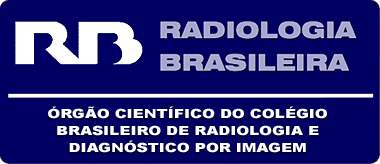Abstract
Objective:
To determine whether 18F-fluorodeoxyglucose positron emission tomography/computed tomography performed immediately after percutaneous ablation (iPA18F-FDG PET/CT) is useful in evaluating the outcomes of the procedure.
Materials and Methods:
This was a retrospective study of 20 patients (13 males, 7 females; mean age, 65.8 ± 12.1 years) submitted to percutaneous ablation of metastases. All of the lesions treated had shown focal uptake on a 18F-FDG PET/CT scan obtained at baseline. The primary tumors were mainly colorectal cancer (in 45%) or lung cancer (in 40%). iPA18F-FDG PET/CT was performed to identify any residual viable tumor cells. The treatment was considered a success (no viable tumor cells present) if no uptake of 18F-FDG was noted on the iPA18F-FDG PET/CT scan.
Results:
Twenty-six lesions were submitted to percutaneous ablation with either cryoablation (n = 7) or radiofrequency ablation (n = 19). The mean lesion diameter was 2.52 ± 1.49 cm. For the detection of viable tumor cells, iPA18F-FDG PET/CT had a sensitivity, specificity, accuracy, positive predictive value, and negative predictive value of 66.7%, 95%, 88.5%, 80%, and 90.5%, respectively. There was a significant correlation between the iPA18F-FDG PET/CT findings and the results of the follow-up studies (kappa = 0.66; p < 0.01).
Conclusion:
iPA18F-FDG PET/CT studies appear to constitute a useful means of evaluating the outcomes of percutaneous ablation. By detecting residual viable tumor cells, this strategy might allow early re-intervention, thus reducing morbidity. Studies involving larger numbers of patients are needed in order to confirm our findings.
Keywords:
Fluorodeoxyglucose F18; Positron-emission tomography/methods; Tomography, X-ray computed/methods; Ablation techniques; Cryosurgery/methods; Radiofrequency ablation




